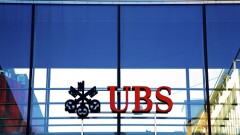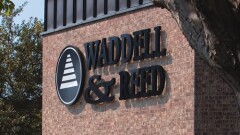After weathering fourth-quarter volatility, publicly traded broker-dealers appear to be on a path right into more global headwinds.
While 70% of the S&P 500 beat analysts’ expectations for earnings per share and the firms’ earnings surged by 13.4%
The stronger U.S. dollar, slower global economic growth and trade difficulties led Butters to predict S&P 500 earnings will slip by 3.4% in the first quarter.
Prior to open on March 11, the NYSE Arca Securities Broker-Dealer Index had grown by more than 7% in the year-to-date to $255.01 per share. The index nearly regained its price before its steep December decline, though it was 2 percentage points behind the S&P 500 for the year.
The index
Wealth management firms and online brokerages have been “slow to react following the December Fed hike” to interest rates,
Just three out of seven firms covered in the note increased their deposit rate on cash holdings in brokerage accounts, with only modest upticks of 4 basis points each at Schwab and TD Ameritrade and 6 bps at LPL. The cash deposit rates affect firms’ earnings each quarter.
“Prior Fed hikes have seen more immediate response by the industry,” Ryan said in the note, adding it appears the firms are “still evaluating both the competitive landscape and market expectations for the future path of short-term rates.”
Ameriprise, Raymond James and LPL still outpaced the combined stock value growth of other BD sectors
Buoyed by LPL’s stock value, the three retail wealth management firms’ stock value rose 2.6% for the week, compared to a slight increase of only 0.1% for the S&P 500.
Publicly-traded wealth management firms’ stocks are picking up much of the value they lost in the volatile fourth quarter. However, their earnings announcements contain several other metrics more specific to the wealth management space — like the number of advisors and client assets.
For a list of the top-performing brokerage stocks since the financial crisis,

















